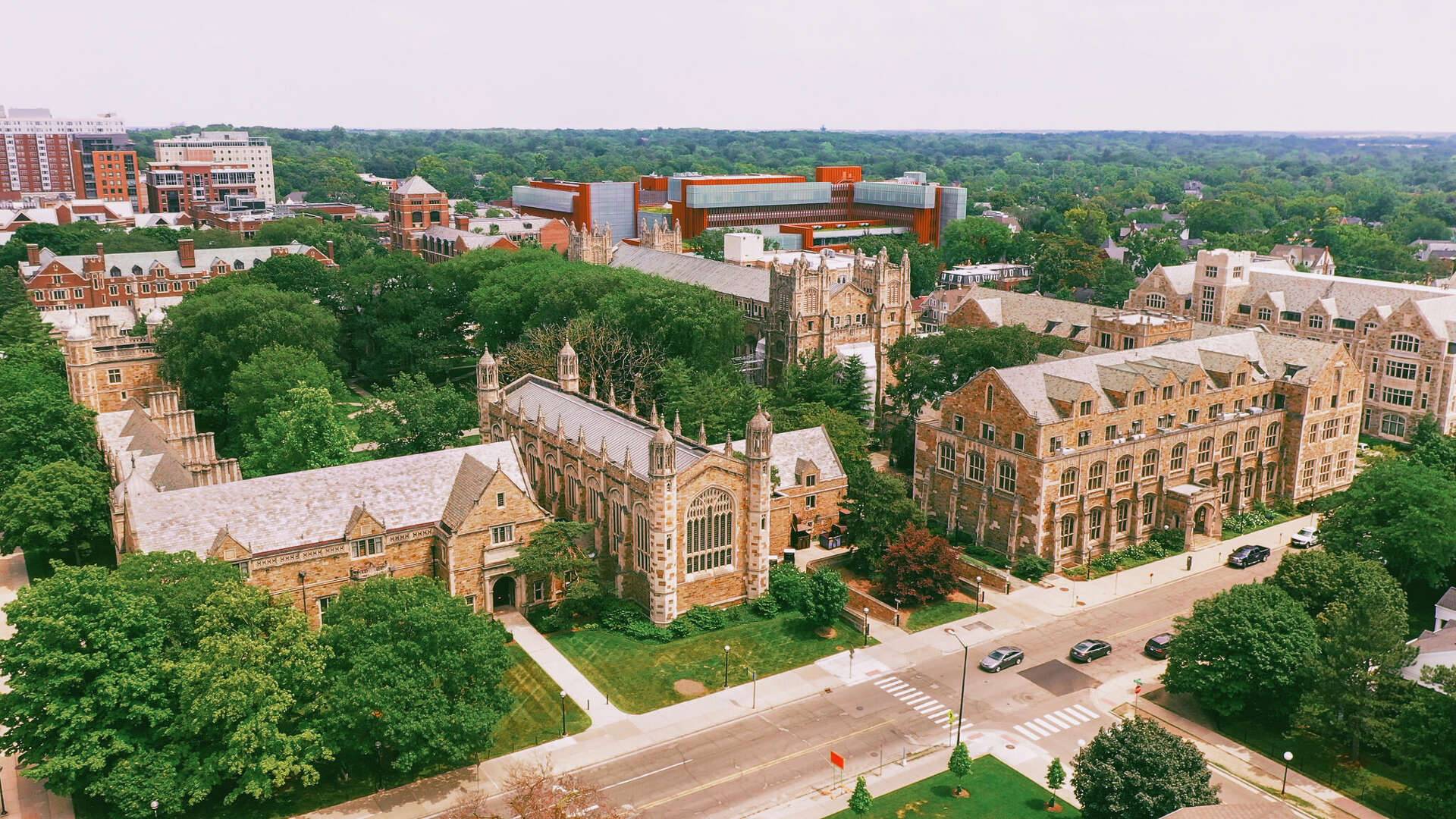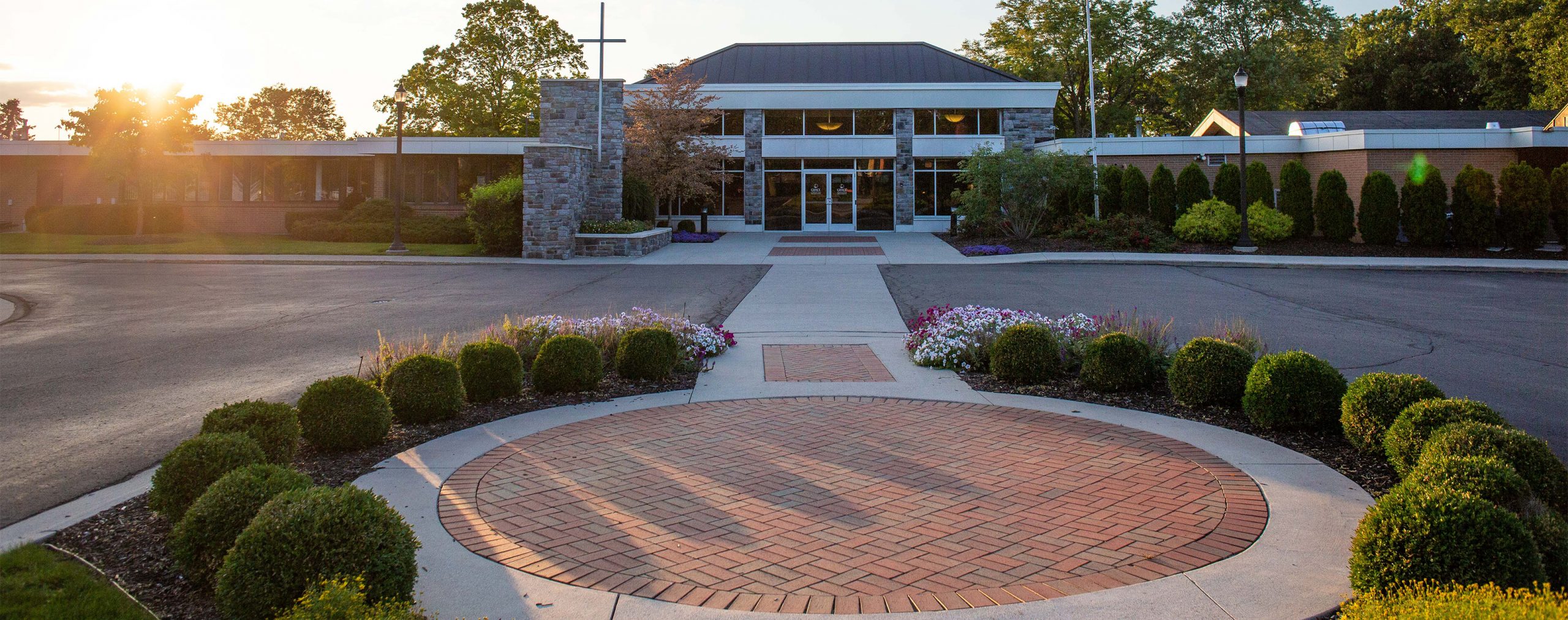Choosing a college is one of the most exciting, yet challenging, decisions you’ll make. Beyond factors like program offerings and campus culture, one of the biggest questions is: should you choose a large university or a small college? Do you imagine yourself in a lively, fast paced environment, or do you prefer a more relaxed intimate setting? Let’s break down the unique experiences of large universities and small colleges, the pros and cons of each, and how these different settings can shape your future.
The World of Large Universities
Large universities like Michigan State, Indiana University, and the University of Michigan offer dynamic environments that can be exhilarating for students who love variety. If the idea of a campus filled with thousands of students and seemingly endless options excites you, a large university might be the perfect fit.

Diverse Academics and Research Opportunities
Large universities offer extensive academic programs across multiple fields of study, from traditional majors to niche areas like digital media and environmental law. Imagine stepping onto campus with thousands of students, each carving their unique path. With a broad selection of courses and majors, you can explore multiple fields and discover unexpected interests.
Large research universities, such as Ohio State, are known for their advanced facilities and extensive research projects. If you’re passionate about making a difference through research, whether in science, technology, social sciences, or humanities, large universities can provide access to renowned professors, cutting-edge labs, and research grants. However, keep in mind that these opportunities are often competitive, and introductory classes, held in large lecture halls, can feel impersonal.
Concerns for Students: The sheer size of large universities can be overwhelming. New students may struggle to stand out in huge classes, and connecting with professors can take more effort. Graduate assistants often teach lower-level courses, which may not provide the level of experience or expertise that a seasoned professor could offer. Additionally, with a wide range of programs, some students may feel directionless without close guidance.
Extensive Resources and Student Services
The resources at large universities can support almost any academic or personal need. From libraries with multi-floor collections to specialized labs and advanced fitness centers, these facilities are designed to cater to a large, diverse student population. Additionally, large universities offer comprehensive student services, such as health centers, career counseling, and mental health support.
However, the popularity of these services means that accessing them can sometimes be challenging. Career counseling or health services may have long wait times, and personalized advising can be limited. This means students might need to take a proactive approach to ensure they receive the support they need.
Concerns for Students: With so many students, personalized support can be hard to come by. If you’re someone who values quick, one-on-one support from advisors or faculty, a large university’s scale may feel frustrating at times. Students might need to learn how to navigate the university’s systems to access resources efficiently.
Networking and Alumni Connections
Imagine graduating from a university with over 100,000 alumni worldwide. This network can be a huge advantage when entering competitive fields. Schools like Indiana University have vast and active alumni communities, giving graduates a strong foundation for networking in fields like business, law, and healthcare. These connections can open doors, offering mentorship, internships, and even job opportunities.
Concerns for Students: In a large network, making personal connections requires effort. The alumni community may be spread across different regions and industries, so students need to be strategic in leveraging these connections, using tools like LinkedIn and university-supported networking events.
A Lively Social Scene and Extracurricular Opportunities
For students who thrive in social settings, large universities provide ample opportunities. Imagine attending football games with thousands of fans, joining any of the hundreds of clubs and organizations, or meeting peers from all over the world. At schools like the University of Michigan, students can join clubs for almost any interest, from Esports and dance to environmental activism.
Concerns for Students: With such a vast social landscape, some students might feel like “just another face in the crowd.” Finding genuine friendships in a large setting can take more time and initiative. For students who prefer tight-knit communities or close friendships, the fast-paced environment of a large university may feel impersonal.
The Intimate, Supportive World of Small Colleges
On the other end of the spectrum, small colleges like Grace Christian University offer a more intimate, community-focused experience. For students who value personal connections, mentorship, and a family-like atmosphere, a small college may feel like the perfect “home.”

Small Classes and Close Faculty Relationships
Imagine sitting in a class with just 15 other students, where professors know your name, understand your goals, and are available for one-on-one conversations. At small colleges, you won’t be just another student in a crowd. Professors at schools like Grace Christian University take an active interest in their students, leading to a more engaging, interactive learning experience.
The smaller class sizes also mean that professors, not teaching assistants, typically lead all courses, giving students access to faculty with years of experience and in-depth knowledge. These close relationships often provide a foundation for mentorship that lasts well beyond college.
Concerns for Students: Students interested in highly specialized programs or research opportunities may feel limited at smaller colleges, as resources are often less extensive. Those who want access to a wide variety of academic fields might find fewer options in a smaller setting.
A Tight-Knit Community
Small colleges offer a close-knit community that many students find deeply fulfilling. Grace Christian University, for example, fosters a supportive, faith-based environment where students have a sense of unity and shared values, making it easy for students to form strong bonds with peers and professors alike. For students who prefer strong friendships and meaningful connections, a small college can feel like a second family.

Concerns for Students: For those seeking a vibrant social scene with diverse activities, the smaller size might feel limiting. Social events may be fewer, and the smaller student population means fewer club and extracurricular options.
Personalized Advising and Career Support
At small colleges, students receive one-on-one attention from advisors and faculty who genuinely care about their success. Advisors work closely with students to help them navigate their academic journeys, from course selection to internships to career planning. At Grace Christian University, advisors get to know students personally, helping them find meaningful career paths and offering guidance on achieving their post-college goals.
Concerns for Students: While small colleges offer strong support, they may not have the extensive career services or internship networks of large universities. Graduates from smaller colleges may need to work harder to expand their professional network beyond the school’s local alumni.
Finding the Right Fit: Large University or Small College?
When it comes to choosing between a large university and a small college, consider your learning style, career goals, and social preferences.
Your Learning Style
- Large University: If you’re comfortable in large lectures, value independence, and enjoy exploring a wide range of fields, a large university may be a great fit. The extensive resources, varied programs, and broad alumni networks can support ambitious academic and career goals.
- Small College: If you prefer close, discussion-based classes where you can engage with professors, a small college might be more your style. Schools like Grace Christian University offer intimate, discussion-driven classes where students can get individual attention and feel truly valued.
Career Goals
- Large University: For students aiming for fields that emphasize research, like science and engineering, large universities offer extensive facilities and funding. Alumni networks in these fields also create a support system that may be helpful.
- Small College: If you want mentorship, a mission-driven education, or values-based career guidance, small colleges offer a close, supportive environment. Grace Christian University, for example, provides career guidance that emphasizes integrity and purpose, preparing students for meaningful work.
Social Preferences
- Large University: If you love large social gatherings, sports events, and meeting new people daily, a big university may be the right environment. The fast-paced social life of a large campus offers variety and excitement.
- Small College: For students who value deep friendships and strong community ties, a small college may be more fulfilling. The close-knit environment at Grace Christian University provides a sense of belonging that’s hard to replicate.
The Real Value: Preparing for Life After College
College isn’t just about classes and social activities, it’s about preparing for the future. Both large universities and small colleges offer valuable experiences that prepare students in unique ways.

The Value of Large Universities
Large universities prepare students to navigate complex systems, adapt to diverse environments, and take charge of their own academic journey. Graduates often develop resilience, problem-solving skills, and the confidence to tackle competitive work environments. The connections made through vast alumni networks can open doors in industries where professional networking is key.
The Value of Small Colleges
Graduates from small colleges often leave with a strong sense of community and close relationships that provide support beyond graduation. The mentorship and personal connections they experience help them build a sense of confidence and purpose. Small college graduates are often well-equipped for leadership roles, community-focused work, and careers where interpersonal skills and ethical integrity are valued.
Making Your Decision
Choosing a college is a deeply personal decision. It’s about finding a place that aligns with your goals, learning style, and sense of community. To make your choice:
- Imagine Your College Experience: Picture your daily routine, do you see yourself thriving in larger lecture halls or small, close-knit classes?
- Visit Campuses: Visiting schools in person helps you understand each campus’s unique culture and vibe.
- Talk to Alumni and Current Students: Their firsthand insights can help you gauge whether a school fits your needs.
The right college is the one that feels like a place where you can grow, learn, and succeed. Whether that’s at a large university or a small college, trust that your college journey will lead you to growth, friendship, and memories that last a lifetime. Take your time, explore your options, and know that a world of opportunities awaits you!





